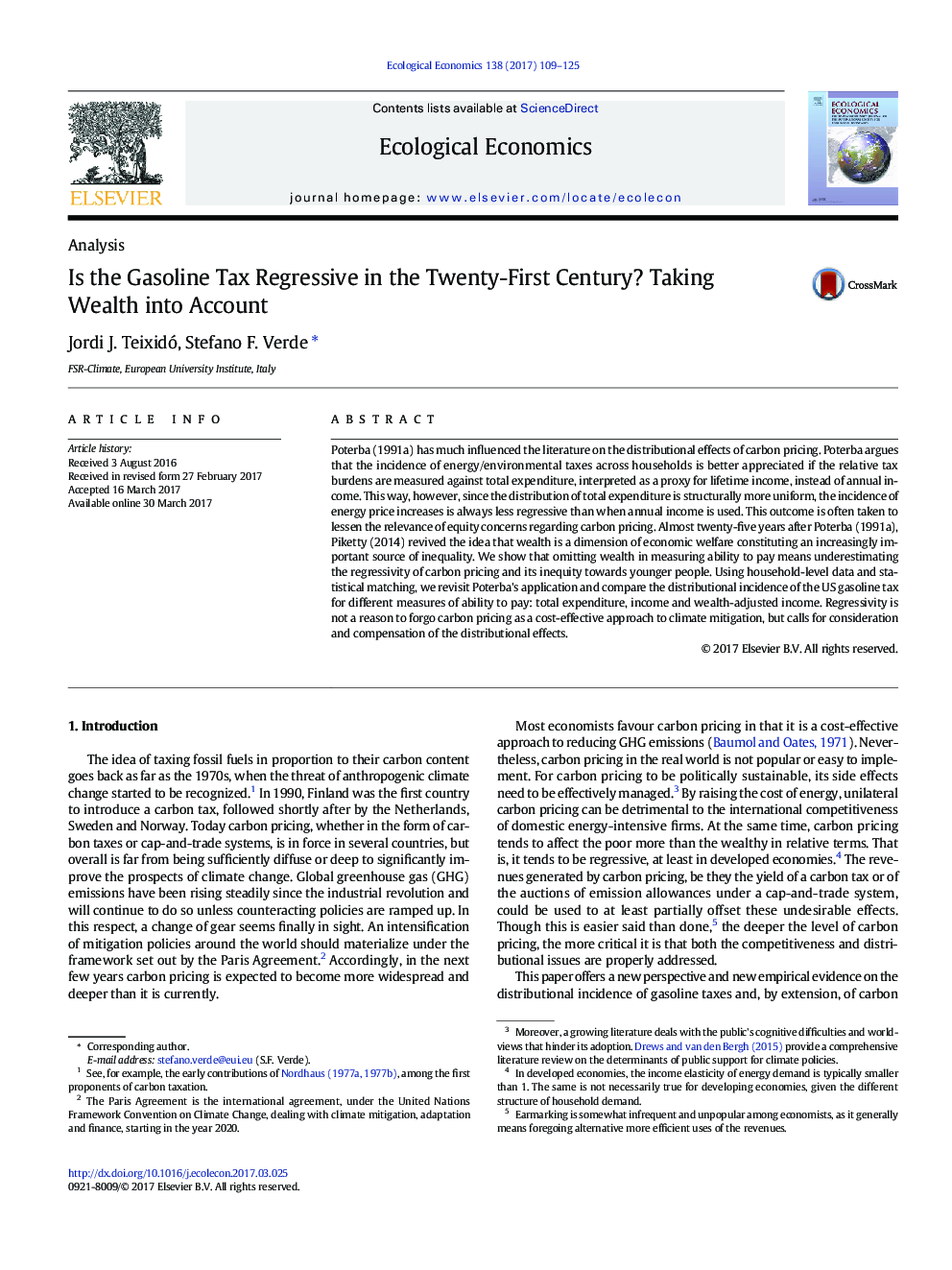| کد مقاله | کد نشریه | سال انتشار | مقاله انگلیسی | نسخه تمام متن |
|---|---|---|---|---|
| 5048750 | 1476341 | 2017 | 17 صفحه PDF | دانلود رایگان |
Poterba (1991a) has much influenced the literature on the distributional effects of carbon pricing. Poterba argues that the incidence of energy/environmental taxes across households is better appreciated if the relative tax burdens are measured against total expenditure, interpreted as a proxy for lifetime income, instead of annual income. This way, however, since the distribution of total expenditure is structurally more uniform, the incidence of energy price increases is always less regressive than when annual income is used. This outcome is often taken to lessen the relevance of equity concerns regarding carbon pricing. Almost twenty-five years after Poterba (1991a), Piketty (2014) revived the idea that wealth is a dimension of economic welfare constituting an increasingly important source of inequality. We show that omitting wealth in measuring ability to pay means underestimating the regressivity of carbon pricing and its inequity towards younger people. Using household-level data and statistical matching, we revisit Poterba's application and compare the distributional incidence of the US gasoline tax for different measures of ability to pay: total expenditure, income and wealth-adjusted income. Regressivity is not a reason to forgo carbon pricing as a cost-effective approach to climate mitigation, but calls for consideration and compensation of the distributional effects.
Journal: Ecological Economics - Volume 138, August 2017, Pages 109-125
